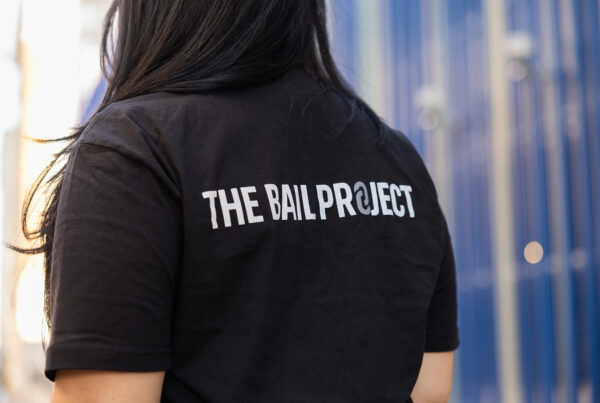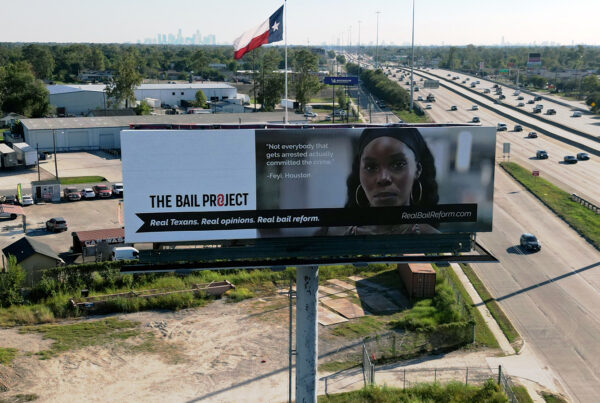Press Contact: Jeremy Cherson, Director of Communications
FOR IMMEDIATE RELEASE:
(FRANKFORT, KY) — On April 12, 2024, the Kentucky House and Senate voted to override Gov. Beshear’s veto of the “Safer Kentucky Act” (House Bill 5). The new law threatens to worsen Kentucky’s overdose crisis, increase homelessness and pretrial jailing, and deepen hardship for those already struggling. The law also includes severe restrictions on charitable bail organizations that provide financial assistance to the many Kentuckians who are in jail simply because they cannot afford to post bail – which is more than half of the Commonwealth’s jail population. The Bail Project offered the following statement in response:
“With this law, the bodies of the legislature have co-signed a policy that says only the wealthiest people deserve the presumption of innocence before trial. But the problem in Kentucky is not with charitable bail organizations, it’s with the cash bail system. When cash bail exists, people – no matter how dangerous they may be – can pay bail and be released, while those posing no threat to the public will be detained simply because they’re too poor to pay. This creates a two-tiered system of justice that advantages the rich over the poor, one where wealth – not safety – determines who is detained pretrial and who goes free.
The harms imposed by a cash bail system are apparently of no concern to Kentucky’s lawmakers. When people are unnecessarily detained because they can’t pay bail, they lose jobs, homes, and access to children, their health suffers, and they face worsened case outcomes. They also face a greater likelihood of being incarcerated again in the future because of how destabilized their lives become. Charitable bail organizations, on the other hand, have been tremendously successful. The 4,200 people living in poverty that The Bail Project provided free bail assistance to across 28 counties in Kentucky safely returned to 91% of their court dates with none of their own money on the line, laying waste to the idea that cash bail is a necessary incentive to ensure that someone returns to court. Restricting the activities of charitable bail organizations without reforming the pretrial system is tantamount to closing food pantries in the midst of a food crisis.
A dozen jurisdictions across the country have recognized cash bail for what it is: an anachronistic, failed public policy. Amidst this sweeping reform movement, the evidence has been clear: minimizing the use of cash bail makes our communities safer by helping people avoid unnecessary incarceration that costs them their jobs and livelihoods. Instead of building on this evidence and advancing policies that reduce wealth-based jailing and improve public safety, Kentucky’s lawmakers took the easy way out by blaming scapegoats for their problems instead of investing in the needed policy solutions that would prevent crime in the first place.
What the people of Kentucky want and deserve are equal opportunities for justice, alongside supportive services that prevent justice-system involvement, like better schools, healthcare, housing, and employment opportunities. Instead, Kentucky’s lawmakers took a huge leap backward, passing a punitive law that will not only increase the cost of administering the state’s criminal justice system by hundreds of millions of dollars, but more importantly, result in more poor and sick Kentuckians incarcerated because the government is choosing to prioritize jail over support. Passed during a time when Kentucky’s violent crime rate is declining and well-below the national average, what this new law makes clear is that its proponents are living in the past. We urge other states to see the Safer Kentucky Act for the regressive and unfortunate piece of legislation that it is and commit to advancing evidence-based solutions that actually make communities safe.”
Thank you for your valuable attention. The urgency and complication of the cash bail crisis requires meaningful participation to create real change – change that is only achieved through the support of readers like you. Please consider sharing this piece with your networks and donating what you can today to sustain our vital work.












